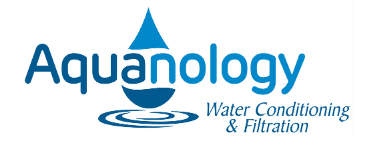Be gone with the costs of hard water.
We offer a full range of water softener services. We will test your water, and provide a comprehensive recommendation to solve your water quality issues. Once you choose to work with us we will handle everything from finding the right water softening system for you, to its installation, and then handling scheduled maintenance, future repairs and even salt delivery.
Aquanology is a family-owned and operated local water softening company serving upstate New York from eastern Rochester to Fort Plain. Our team is ready and able to handle all of your water softening needs. Call us today for a free consultation.
We install a system that will serve you well for years. Your system is backed by an excellent manufacturer’s warranty and our company’s performance guarantee. We offer a full line of scheduled maintenance services, as well as our “just a phone call away” phone support and service for emergencies that may arise.
We offer service for most common brands.
Contact us and we’ll see if we can help.
Common water softeners work on a process known as ion-exchange. A softener tank is partially filled with resin media, or tiny beads. These beads have sodium ions attached to them.
A softener’s efficiency is always directly related to the water it is treating. However, upgrades and innovations in water conditioning technology have increased efficiency in recent years.
An average 3-person home would use about 300 gallons of water per day. If this would be on public water supplies with a supposed water hardness of 10 grains of hardness, a new high-efficiency water softener would use approximately 21 pounds of salt per month. In a year, this would be about 250 pounds or five 50-lb. bags.
Well water tends to have higher hardness levels which translates into higher salt usage. With well water that is 30 grains of hardness, the same amount of water used would bring monthly salt usage to about 60 pounds of salt per month.
Keep in mind, that when removing iron from water with a softener, higher salt dosages are required. This means a sacrifice from salt usage efficiency.
Remember that not all softeners are created equal. There are varying degrees of efficiency in water and salt usage among softeners available on today’s market. If you have any questions, or would like your water tested, contact Aquanology, LLC today.
At Aquanology, we offer salt delivery on a scheduled basis if that is a convenience that you would prefer. However, it can also be purchased at big box stores such as Lowe’s and Home Depot, as well as many other local home and garden supply stores.
While salt-free scale inhibitors might be what you want in your home, there are a few points that need to be made clear. First, a water softener and a scale inhibitor function entirely differently. A true water softener removes the hard ions so that the water feels soft, reduces soap requirements, reduces scale, and reduces fiber-fray in clothing washed in soft water. A scale inhibitor only changes the hard ions and leaves them in the water. The biggest benefit from a scale inhibitor is that it reduces scale build up on your faucets and appliances.
The only true system that softens water without salt is a Reverse Osmosis system. These systems can reduce your hardness by 99% without giving the water a slippery feel. Call us and ask about a reverse osmosis (RO) for your home to soften the water.
Water hardness, or “hard water” is a common term used for the elements of calcium and magnesium dissolved in our water. It is a naturally introduced substance, since these minerals dissolve as rainwater infiltrates the ground and percolates down to aquifers.
As far as we know, these mineral substances aren’t harmful to health when we consume water with them.
The mineral buildup from hard water is the upfront challenge these elements pose when in our water supplies. The challenge is becoming especially apparent with today’s modern appliances (such as dishwashers, laundry washers, and coffee makers), as well as improved high-efficiency water heaters.
In addition, hard water scale can quickly become an enemy by building up on porcelains, faucets, glassware, etc.
Another downside to hard water is its ability to absorb soap and cleaners, not allowing them to work properly and requiring higher usage. It can contribute to dry skin and hair after bathing, and cause clothes to wear out 15% faster than clothes washed in soft water.
A water softener can remove the hardness from your water, and effectively eliminate or reduce the negative impacts you’re experiencing from hard water.
